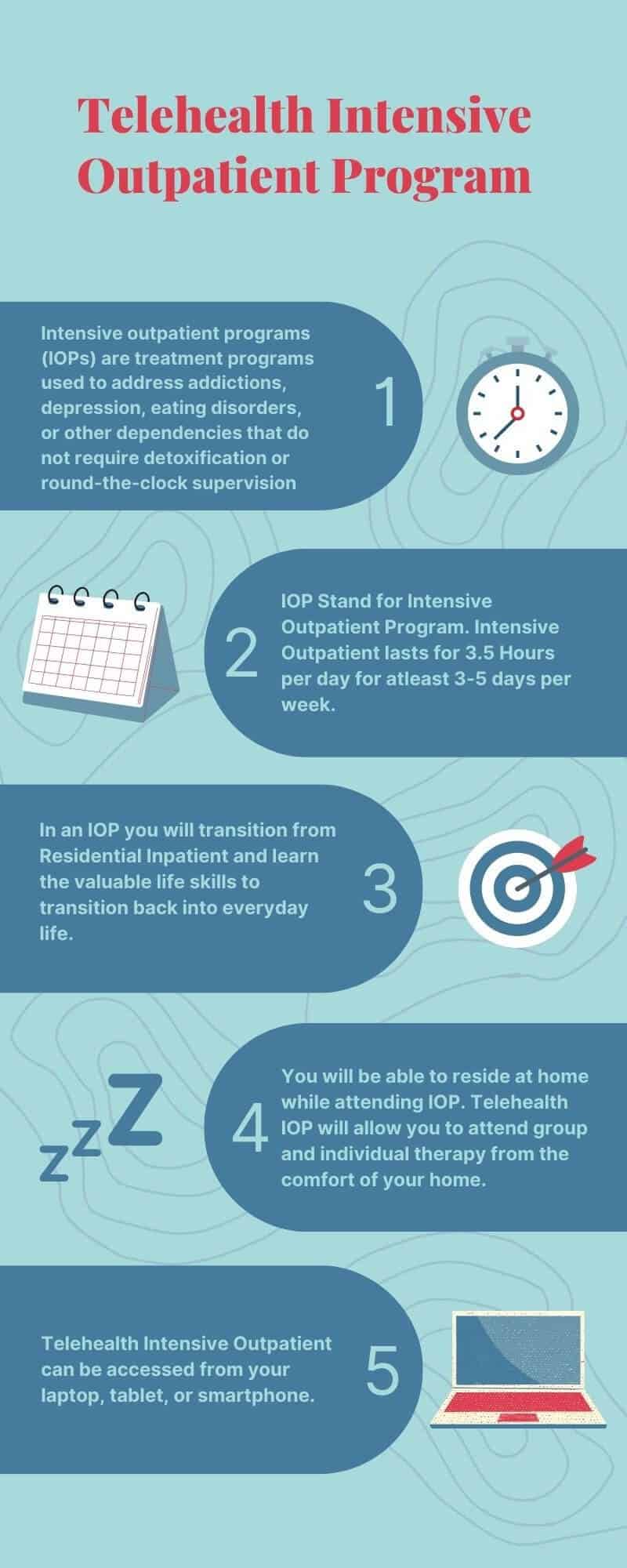Browsing the Complexities of Double Medical Diagnosis Treatment Within an Intensive Outpatient Program Establishing
In the realm of psychological health and wellness and addiction treatment, the intersection of dual diagnosis provides a nuanced difficulty that demands a thorough and tailored approach. By exploring the ins and outs of double diagnosis treatment within this intensive outpatient context, a more clear path arises in the direction of alternative and sustainable recuperation for those grappling with these linked challenges.
Double Diagnosis Review

Comprehending dual medical diagnosis is essential as it needs a thorough and integrated strategy to treatment. By recognizing the interplay between material use and mental health and wellness, health care suppliers can tailor interventions to satisfy the one-of-a-kind needs of each individual. This all natural approach not only addresses signs and symptoms however additionally targets hidden factors that add to the twin medical diagnosis.
Additionally, unattended twin diagnosis can lead to a cycle of regression and worsening mental health signs. By acknowledging the intricacy of dual medical diagnosis and giving customized treatment, healthcare professionals can support individuals in accomplishing lasting recuperation and boosted psychological health.
Tailored Therapy Plans
Acknowledging the complex interaction in between compound use conditions and psychological wellness problems, the development of customized therapy plans is vital in dealing with the intricacies of double medical diagnosis in psychological health treatment. Customized therapy strategies are customized methods that take into consideration the special requirements, difficulties, and objectives of people encountering twin medical diagnosis. These strategies are developed collaboratively by a multidisciplinary team of professionals, consisting of psychoanalysts, psycho therapists, social employees, and dependency experts, to guarantee extensive and incorporated treatment.
Tailored therapy strategies normally entail a combination of therapies, medications, and behavior treatments that target both the compound use disorder and the psychological health and wellness problem simultaneously. These strategies may consist of cognitive-behavioral treatment, dialectical behavior treatment, medication-assisted treatment, individual therapy, team treatment, and household treatment, to name a few evidence-based treatments. By customizing therapy methods to individual circumstances, customized strategies can deal with the origin of dual medical diagnosis, promote long-term recuperation, and go to these guys enhance overall lifestyle for people dealing with co-occurring problems.
Integrated Care Approach
An integrated care technique in dual diagnosis therapy combines medical, emotional, and social interventions to attend to the complex requirements of people with co-occurring compound use disorders and mental health and wellness conditions. This strategy recognizes that dealing with one aspect of a twin medical diagnosis without dealing with the other can result in ineffective outcomes. By incorporating medical interventions such as medicine monitoring for psychological health conditions with mental treatments like cognitive-behavioral treatment for material use conditions, people obtain detailed treatment that targets all facets of their double medical diagnosis.
Furthermore, the social aspect of incorporated treatment involves attending to ecological variables that may contribute to the development or perpetuation of substance usage and mental health problems. This can include household dynamics, housing instability, or lack of social support. By integrating social treatments like family members treatment, trade support, and community resources, the treatment becomes more holistic and customized to the person's certain requirements. Generally, an incorporated care approach in twin medical diagnosis treatment within an extensive outpatient program setup aims to offer extensive, efficient, and individualized like people dealing with co-occurring disorders.
Difficulties in IOP Setting
In the context of twin diagnosis therapy within an intensive outpatient program, navigating the intricacies of co-occurring substance usage disorders and psychological wellness problems presents substantial difficulties. Among the main difficulties in the IOP setting is the control of care between mental wellness experts and chemical abuse professionals to make sure an extensive therapy approach. This needs effective communication, cooperation, and a deep understanding of how these problems interact and influence each various other.

In addition, dealing with preconception and resistance to therapy within the IOP setting can restrain progress. Some people might see post be hesitant to reveal their twin diagnosis or might really feel ashamed, hindering their involvement in the therapeutic process. Getting rid of these barriers requires a helpful and non-judgmental setting that fosters trust fund and openness.

Collaborative Specialist Initiatives
Effective double medical diagnosis treatment in an intensive outpatient program requires seamless cooperation among psychological health and wellness professionals and compound abuse professionals to make certain a thorough and integrated strategy to care. By working with each other, these experts can develop individualized therapy plans that cater to the unique demands of each individual, considering both their psychological health and compound misuse challenges.
Collaborative efforts likewise prolong to normal communication and information sharing among group members to guarantee a cohesive therapy technique. Inevitably, a joined front of specialists working together enhances the effectiveness of dual diagnosis treatment within an extensive outpatient program.
Verdict
Finally, effective twin medical diagnosis therapy within an intensive outpatient program setting requires customized therapy strategies and an incorporated care method. Difficulties may occur in this setting, yet joint initiatives among experts can help navigate these complexities. By addressing the unique demands of people with co-occurring mental health and wellness and compound utilize disorders, IOP programs can provide comprehensive and all natural like support recuperation and total wellness.
Comments on “Why an Intensive Outpatient Program (IOP) is Crucial for Lasting Recovery.”